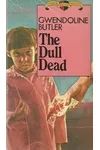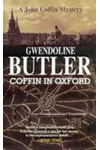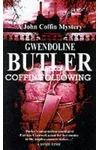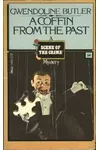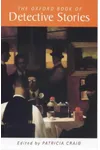Picture a British storyteller who spun tales of gritty crime and tender romance, all while breaking new ground in detective fiction—meet Gwendoline Butler! Born in 1922 in South London, this trailblazing author redefined mystery novels with her pioneering 'woman’s police procedural,' captivating readers with her John Coffin and Charmian Daniels series. With over 50 novels, Butler’s legacy sparkles in the world of crime fiction.
From her academic roots at Oxford to her award-winning stories, Butler’s life was as fascinating as her plots. Let’s dive into the world of this literary icon whose clever mysteries and heartfelt romances still thrill readers today.
The Making of Gwendoline Butler
Gwendoline Williams was born on August 19, 1922, in Blackheath, South London, to Alice and Alfred Edward Williams. A bright mind, she studied history at Lady Margaret Hall, Oxford, and later lectured there, sharpening her knack for research that would enrich her novels. In 1949, she married Lionel Harry Butler, a medieval history professor, and together they welcomed a daughter, Lucilla. By 1956, Gwendoline launched her writing career with the John Coffin series, blending her love for history and storytelling into gripping crime tales.
Gwendoline Butler’s Unforgettable Stories
Butler’s John Coffin series, starting with Receipt for Murder (1956), follows the mercurial Scotland Yard inspector as he navigates complex cases in London’s shadowy corners. Spanning 34 novels, the series evolved, with Coffin relocating to the fictional Second City of London in Coffin in the Black Museum (1989), reflecting Butler’s knack for reinventing her characters. Her vivid settings and psychological depth made each book a page-turner.
Under the pseudonym Jennie Melville, Butler introduced Charmian Daniels in Come Home and Be Killed (1962), a trailblazing female detective who tackled crime in Deerham Hill. Credited with inventing the woman’s police procedural, Butler infused Charmian’s 22 novels with early feminist themes, showcasing women thriving in a male-dominated field. Her romantic novel The Red Staircase (1981) won the Romantic Novelists’ Association Award, proving her versatility across genres.
Butler’s style blended meticulous plotting with quirky characters and social commentary. Whether exploring Victorian mysteries or modern detective tales, her historical accuracy and engaging narratives kept readers hooked. Her 1973 Silver Dagger win for A Coffin for Pandora cemented her status as a crime fiction luminary.
Why Gwendoline Butler Matters
Gwendoline Butler’s impact on crime fiction is monumental. By creating Charmian Daniels, she paved the way for female detectives in literature, influencing writers like P.D. James and Ruth Rendell. Her ability to weave romance, gothic, and mystery elements made her a versatile force, earning her a spot among crime fiction’s greats. A member of the Crime Writers’ Association and Detection Club, Butler’s legacy endures through her timeless stories and the inspiration she offers aspiring writers.
Her work reflects a changing world, capturing evolving gender roles and societal shifts. Fans of classic detective fiction still cherish her novels for their intricate plots and memorable characters, ensuring Butler’s place in literary history.
- Born: August 19, 1922, South London, England
- Key Works: John Coffin series, Charmian Daniels series, The Red Staircase
- Awards: 1973 CWA Silver Dagger, 1981 Romantic Novelists’ Association Award
- Pseudonym: Jennie Melville
Snag Coffin in the Black Museum or Come Home and Be Killed and dive into Gwendoline Butler’s thrilling world of mystery and intrigue!


